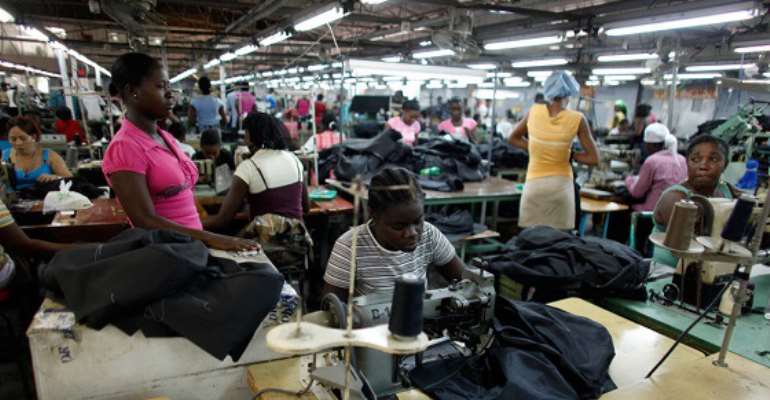The need to expedite action on the Aba garment and leather cluster

Indeed, the narrative of the Aba shoe industry is changing positively. Recently, there is an order to an indigenous private firm to supply 50,000 pairs of military boots. According to Governor Okezie Ikpeazu, who is the Chief Marketing Officer of the Made-in- Aba products, quality would be ensured in the production of the military boots to attract more supplies.Also, during the 2016 Tony Elumelu Entrepreneurship Forum held in Lagos recently, former President Olusegun Obasanjo, who served as one of the panelists, was elated with the current strides of Gov. Ikpeazu to ensure that made-in- Aba products become global brands. Obasanjo said:"Governor, I listened to you and I commend you for what you're doing in Abia. Please keep doing what you've told us you're doing. So, Governor Abia, you have to send a pair of the shoes to me, I use size 42".
The call by the Senate President, Bukola Saraki to other military and paramilitary outfits in the country to emulate the army by immediately banning the purchase of all imported foot wears in preference for locally produced ones raises more prospects for made-in- Aba foot wears.
"This is the essence of the amendment of the Public Procurement Act by the Senate since June. The new law compels all Ministries, Department and Agencies of government to compulsorily give preference to goods and services which can be sourced locally. We believe one of the gains that our country will derive from this recession is to make our people look inward and patronise locally made goods," Saraki said.
It is an incontrovertible fact that Abia has comparative advantage in leather and garment works. And since the inception of the present administration, Gov. Okezie Ikpeazu has demonstrated unrelenting efforts to ensure that these products are launched globally.
It will be recalled that Abia State Government last year organized an economic trip to Turkey.The contingents to the trip visited several shoe factories in Turkey where they were exposed to different machines which are used in making shoes .The essence of this exposure was to familiarize Aba shoe manufacturers with mechanized methods of manufacturing shoes which is the vogue in Turkey in particular,and the world in general. It was also to elevate their skill with training and exposure to modern technology to enhance capacity.
The knowledge drawn from Turkey a trip affected the productivity of shoe manufacturers in Ariaria. Production has increased from less than 300,000 pairs of shoes weekly to over 600, 000 pairs. Brazilian investors who visited the market last year were enthralled by what they saw. They bought pairs of shoes and wondered what the market would be when manufacturing process is fully mechanized as the machines will soon arrive Abia. The breakdown of the production capacity of the various pits in the market is as follows :Togo pit now produces 60,000 pairs of shoes weekly; Cameroun120,000;Lagos 180,000; and Maiduguri 200,000.
Presently the Ariaria shoe market is divided into six zones: Power Line, Omenma, Imo Avenue, Shoe Plaza, Umuehilegbu Industrial Market, and Old Site .The total number of shoe makers from the various zones is estimated at 70,000 and the shoe manufacturing process is supported by division of labour. Each process is manned by either a smoother, tailor, sprayer, or a wheeling machine operator. On the average, each production is expected to employ three persons.
To address the problem of the explosion Ariaria shoe market,a cluster for garment, shoe, belt and bag workers has been proposed for Umukalika, a shouting distance from Aba. This cluster would be equipped with a resource centre that could enable businessmen to register their trademarks, do quality control and open them to markets beyond the shores on Nigeria.
The benefits of the cluster are multifarious. It will also ensure that the leather workers enjoy economies of scale. The concentration of men with similar skills will promote competition and the innovation and will provide the common spirit that is necessary for cooperation and cross fertilisation of ideas. By bringing the shoe manufactures into clusters, they will easily learn about changing economic conditions, adapt and benefit from the changes. The physical proximity of these would encourage interaction and promote the exchange of ideas and expertise and this will, at the end, stimulate innovation and economic growth.
There is an urgent need to actualise the Aba garment and leather cluster!
Ukegbu, a communication strategist, writes from Umuahia.
